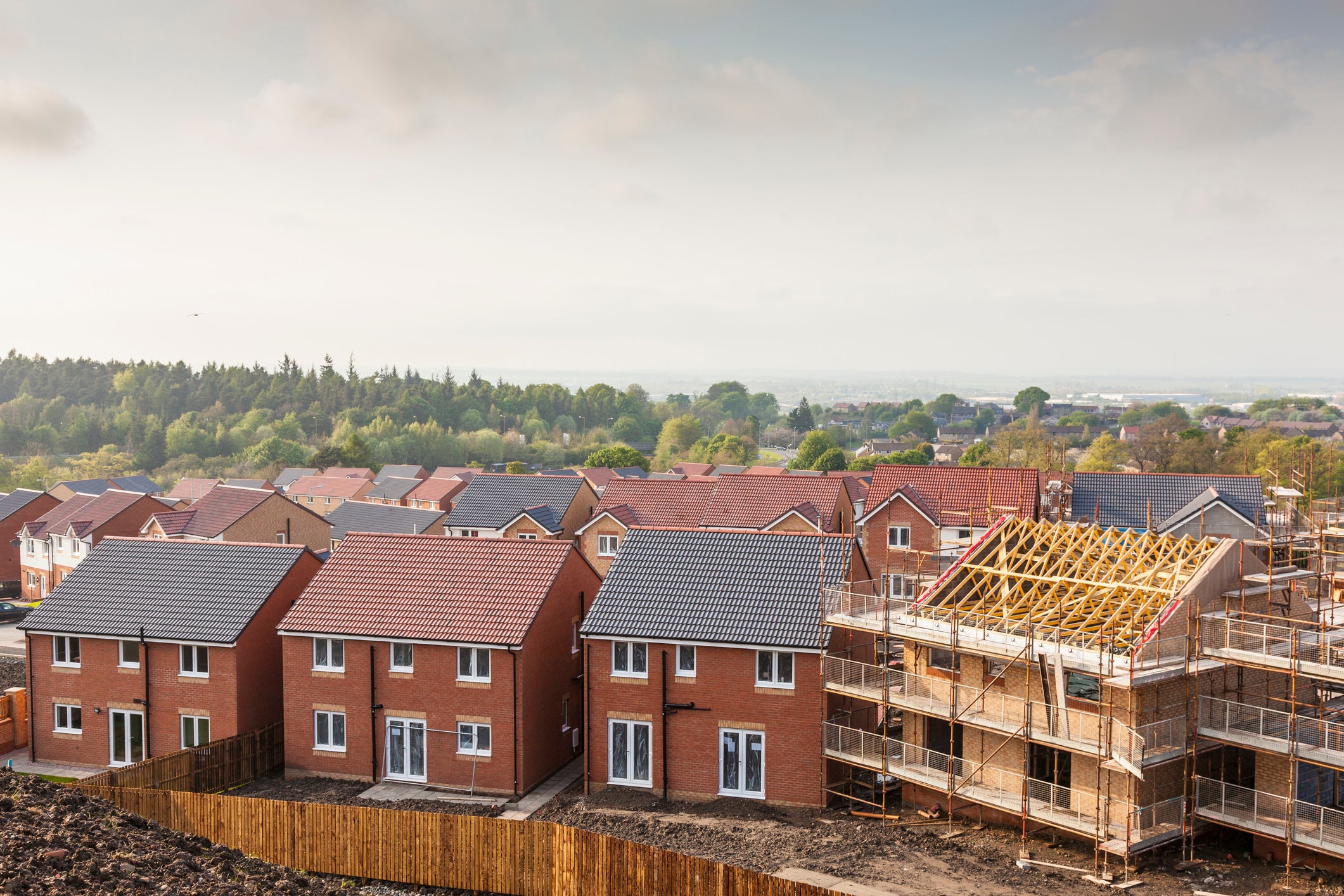Almost 800,000 fewer homes zero-carbon due to Tory planning deregulation
Revelation comes amid questions over Tory links to property developer donors

Your support helps us to tell the story
From reproductive rights to climate change to Big Tech, The Independent is on the ground when the story is developing. Whether it's investigating the financials of Elon Musk's pro-Trump PAC or producing our latest documentary, 'The A Word', which shines a light on the American women fighting for reproductive rights, we know how important it is to parse out the facts from the messaging.
At such a critical moment in US history, we need reporters on the ground. Your donation allows us to keep sending journalists to speak to both sides of the story.
The Independent is trusted by Americans across the entire political spectrum. And unlike many other quality news outlets, we choose not to lock Americans out of our reporting and analysis with paywalls. We believe quality journalism should be available to everyone, paid for by those who can afford it.
Your support makes all the difference.Around 800,000 homes have been built to lower emissions standards or without carbon offsets because the government scrapped tough environmental rules six years ago, it can be revealed.
Ministers were accused of wasting "years of vital progress" in the fight against the climate emergency, baking in high-carbon housing stock for decades, and driving up energy bills for families.
The last Labour government introduced a legal requirement for new homes to be made net zero carbon by 2016, but in 2015 the Conservative government scrapped the plan at the last minute.
796,710 new dwellings have been built since then, according to official figures – practically none of them net zero and all expected to last well beyond when the whole economy must hit net zero.
It comes amid concern about the influence of property developers on the Conservative party, with the party having taken £891,000 in donations from the sector in the first quarter of 2021 alone.
Companies linked to property developers have donated over £10 million to the governing party since the start of 2019 and Labour says Tories have consistently put the interests of donors ahead of the public.
Approached about the policy change, the Ministry of Housing, Communities, and Local Government said the net zero requirement's inclusion of "carbon offsetting" as a possible way for homes to hit net zero justified ending the requirement altogether.
However, the government could have changed the rules of the schemes to simply not allow carbon offsetting.
Offsetting, which involves strategies like planting trees to reduce the net emissions of a project, is also used in other areas of government policy, including as part of the government's own national net zero emissions target.
Labour's shadow business secretary Ed Miliband said: "The Government’s dither and delay means we’ve lost six years of vital progress in reducing emissions and lowering energy bills.
“Sadly this mistake isn’t just a one-off but part of a damaging pattern. Just this year, the Government axed the Green Homes Grant scheme which could have helped households insulate their homes, reduce their emissions, and save money on bills.
“800,000 households could have had lower energy bills and zero carbon homes by now if the zero carbon hones standard had not been abolished. Hundreds of thousands more homes will also be built before this standard comes in.
"The Conservatives cannot be trusted to deliver, whether it's on reducing emissions or protecting family finances."
The government has now said it will require homes to be made net zero by 2025, with higher emissions standards phased in. Offsets will also be used as part of the government’s plan to eventually make homes net zero.
A spokesperson for the Ministry of Housing, Communities, and Local Government said: “The Zero Carbon Homes policy involved carbon offsetting, rather than making homes zero carbon, and would have would have provided limited benefits to consumers as it wouldn’t necessarily have increased the efficiency of their homes.
“By delivering carbon reductions through the fabric and building services in a home, rather than relying on wider carbon offsetting, the Future Homes Standard ensures new homes will have a smaller carbon footprint than any previous government policy.”
Join our commenting forum
Join thought-provoking conversations, follow other Independent readers and see their replies
Comments